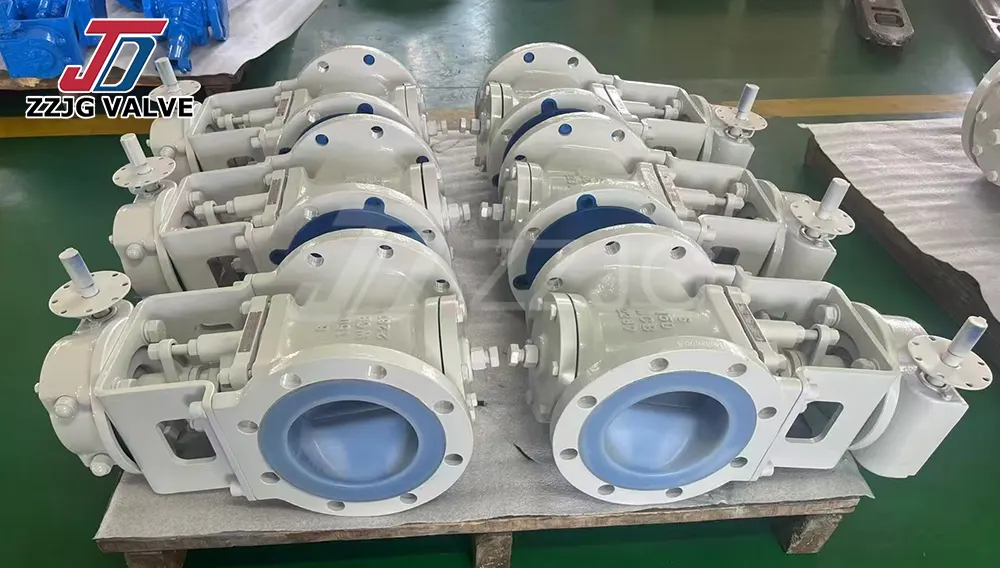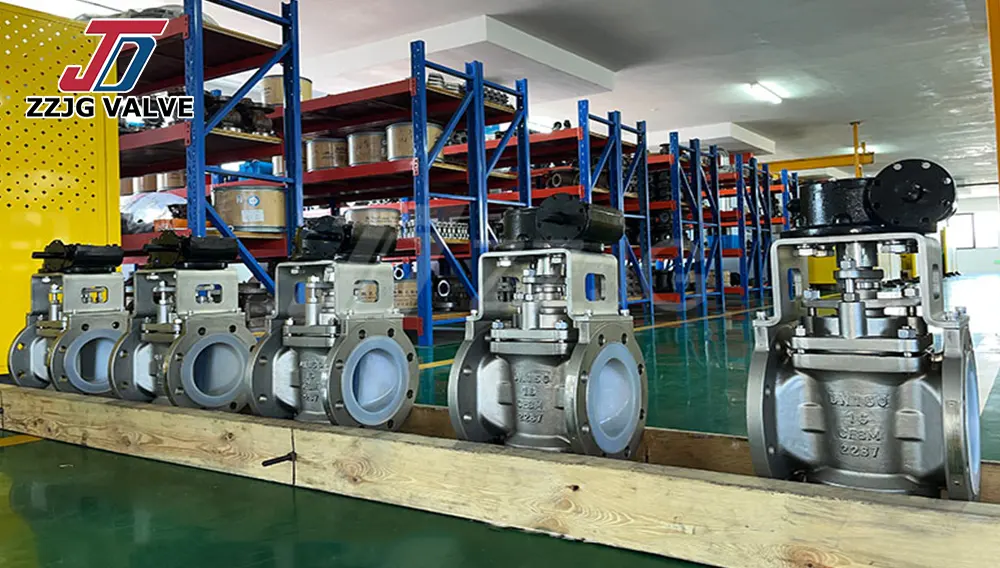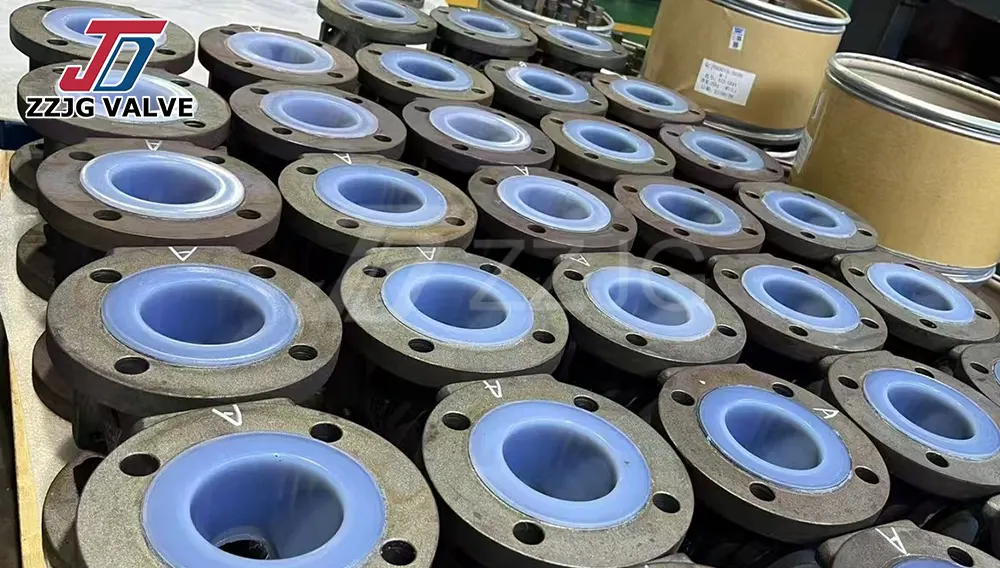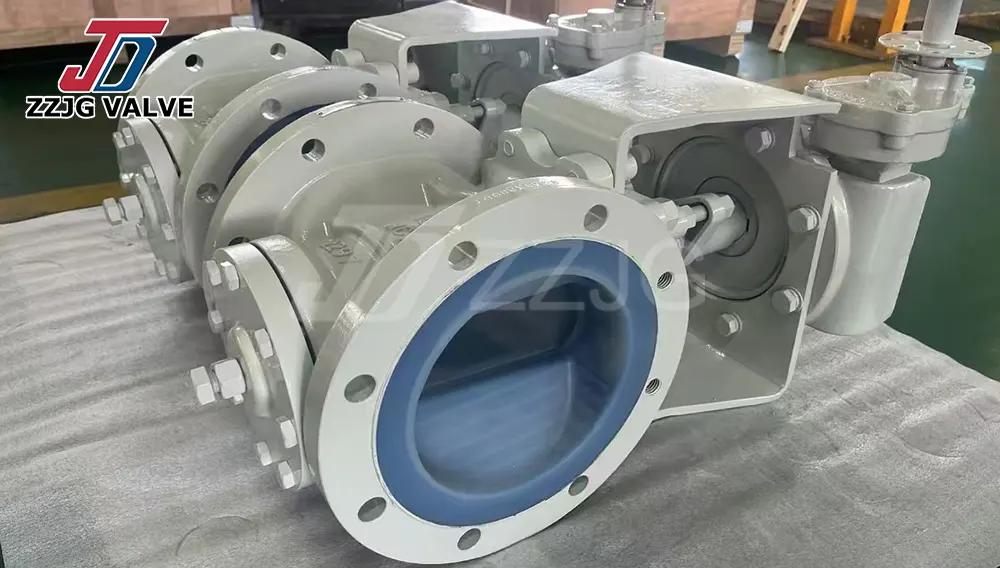Fluorine-lined Plug Valve For Harsh Industrial Working Conditions
In the chemical, pharmaceutical, metallurgical and other industrial fields, the high corrosiveness of the medium, high temperature and high pressure, and easy crystallization and scaling have long plagued the stable operation of the pipeline system. Traditional valves often leak, get stuck or even fail due to corrosion resistance of materials or structural design defects, which not only increases maintenance costs, but also may cause safety hazards.

Fluorine-lined plug valves have become an ideal choice for meeting these challenges with their unique fluorine-lined process and plug structure. This article will deeply analyze the core pain points and technical advantages of this product in application, and show the transformative value it brings to industrial processes.
1. Industry pain points: three major shortcomings of traditional valves
(1)Corrosive media erosion, short valve life
Media such as strong acids (such as sulfuric acid, hydrochloric acid), strong alkalis or organic solvents are extremely corrosive to metal valve bodies. Ordinary stainless steel valves may have problems such as perforation and sealing failure after a few months of use, and frequent replacement leads to production stoppage losses.(2)Deposition of granular media, high risk of valve jamming
Fluids containing solid particles or easy to crystallize (such as slurry, salt solution) are easy to accumulate in the valve cavity. Traditional gate valves or ball valves are more prone to clogging due to complex flow channels, and need to be manually disassembled and cleaned, affecting production efficiency.
(3)Sealing performance is difficult to guarantee under high temperature and high pressure conditions
In high temperature above 80℃ or high pressure environment above 10MPa, ordinary rubber sealing rings are prone to aging and deformation, and metal valve seats produce gaps due to thermal expansion and contraction, resulting in frequent internal or external leakage accidents.

2. Four major technical advantages of fluorine-lined plug valves
In response to the above pain points, fluorine-lined plug valves have achieved performance breakthroughs through dual innovations in materials and structures:
(1)Fluorine-lined anti-corrosion: the ultimate protection against "corrosion" with "plastic"
The inner cavity of the valve body and the surface of the plug are lined with polytetrafluoroethylene (PTFE) or modified fluoroplastics (such as PFA) as a whole, with a thickness of up to 3-5mm. The chemical inertness of fluoroplastics can withstand most highly corrosive media, including concentrated acids, strong alkalis and organic solvents (corrosion resistance ≥ 99%), and the valve body base material is carbon steel or cast iron, taking into account both strength and cost. Actual measured data show that within the pH range of 0-14, the life of fluorine-lined valves is 3-5 times longer than that of ordinary valves.
(2)Right-angle flow channel design: unobstructed "self-cleaning" characteristics
The straight-through flow channel of the plug valve has no dead angle. When it is opened, the medium passes almost in a straight line, and the pressure loss is 30% lower than that of the ball valve. For fluids that are easy to crystallize, the 90° rotating shearing action of the plug can effectively peel off the attachments, and with the low surface energy of PTFE (friction coefficient is only 0.04), the risk of blocking is significantly reduced. After a chemical plant applied it in the phosphoric acid transmission pipeline, the maintenance cycle was extended from 1 month to 1 year.
(3)Double sealing structure: reliable guarantee of zero leakage
Adopting the combination of "PTFE soft seal + metal elastic valve seat": Under normal temperature conditions, PTFE and the plug fit tightly to achieve bubble-level sealing (leakage rate ≤10-6 mg/s); at high temperature, the spring-loaded metal valve seat automatically compensates for thermal deformation to ensure no leakage at 200°C. In addition, some models have added a stuffing box emergency sealing function, which can be maintained online even if the main seal is damaged.
(4)Lightweight operation and intelligent adaptation
The torque of the fluorine-lined plug valve is 40% lower than that of the ball valve of the same caliber, and supports manual, pneumatic or electric drive. High-end models integrate sensors to monitor the valve position and sealing status in real time, and achieve predictive maintenance through the Industrial Internet of Things (IIoT) to avoid unplanned downtime.

3. Typical application scenarios and customer benefits
Chemical industry: wet chlorine gas pipelines in chlor-alkali production to solve the problem of chloride ion stress corrosion;
Environmental protection engineering: acid and alkali dosing system of wastewater treatment plant, tolerant of pH fluctuations of 1-13;
Pharmaceutical industry: GMP clean pipelines, meeting the requirements of no dead angle and easy sterilization;
Metallurgical industry: electrolyte transportation, anti-hydrofluoric acid corrosion and no zinc powder deposition.
According to feedback from our customer - a large petrochemical enterprise, after replacing with fluorine-lined plug valves, annual maintenance costs were reduced by 52%, unexpected downtime was reduced by 70%, and the investment return cycle was less than 8 months.

4.Conclusion: A leap from "passive response" to "active defense"
Fluorine-lined plug valves transform corrosion protection, anti-blocking and long-term sealing into controllable technical parameters through the deep integration of material science and fluid engineering. With the advancement of fluoroplastic modification technology (such as nano-filling to enhance wear resistance), its applicable boundaries will be further expanded. For companies pursuing reliability and full life cycle cost optimization, this product is undoubtedly a "pipeline guard" tailored for harsh working conditions.
Previous: Differences in Applications between Plug Valves and Ball Valves